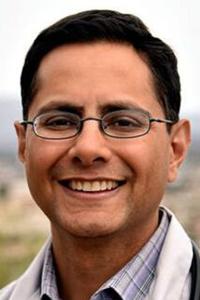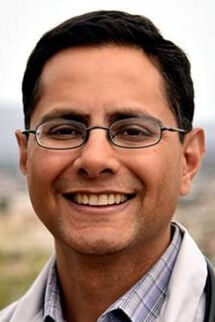In the first days after closure of the УлшжжБВЅ Unified School District desegregation court case, district administrators are still reviewing the final court order and how they are to proceed in efforts for equity and equality.
But at least one thing seems clear from Tuesdayтs court order: Full control and authority are returned to the district and its elected governing board.
Board member Ravi Shah said Friday he anticipates the governing board will now be able to make decisions without seeking court approval.
тThat will be a huge benefit because we can really do whatтs best for our community and our students,т Shah said, adding that the court didnтt share the same familiarity that the governing board has with the TUSD community.
TUSD spokeswoman Karla Escamilla said district officials were not granting interviews about the desegregation case, pending their legal departmentтs full review of the court order.
People are also reading…
U.S. District Court Judge David C. Bury issued the order on Tuesday, July 19, granting TUSD unitary status, meaning the district had eliminated the vestiges of past discrimination.
That order, which brought the case to a close on July 20, wrapped up the decades-long court case that stemmed from two class-action lawsuits filed in 1974 by a Black family and a Mexican American family that accused TUSD of segregation.
The two lawsuits were later consolidated and, in 1978, the court found that discriminatory segregation existed in the district. That put TUSD under judicial supervision, in which the court had to approve any action that could potentially impact students.
Sylvia Campoy, a representative for the Latino plaintiffs, declined to comment Friday as she had yet to discuss the latest court order with the plaintiffs and legal counsel. An attorney and a representative for the African American plaintiffs could not be reached for comment.
Post-unitary status plan
Adelita Grijalva, who has served as a board member during the most recent 20 years of the 48-year-old lawsuit, said the judicial supervision included actions like approving yearly budgets, creating new employee positions and implementing or dismantling programs.
тThe district deserved to be put under the court order,т she said, adding that there were clear signs of discrimination against Black and Latino students.
Still, she noted it was frustrating to have to seek permission for nearly every action taken by the board.
Both Grivalva and Shah said the district has come a long way to ensure all actions represent the best interests of the community.
тOur leadership is so different. We have a governing board thatтs elected by our community that truly reflects our community,т Shah said.
тI think this is the most diverse governing board weтve ever had at TUSD in terms of racial background, LGBTQ background, economic background, and that really makes a difference,т he said.
During the 2021-2022 school year, TUSD served just under 46,400 students. Of those, about 64% were Hispanic students and nearly 7% were African American.
Moving forward, as required by the court, the district must follow a post-unitary status plan, in which it details how the district plans to ensure continued equity and equality for the students it serves.
While Shah wasnтt able to provide specific details of that plan, he said the community can expect more information about the desegregation efforts and details of that plan to be discussed at an upcoming TUSD governing board meeting.
тThe work of addressing disparities continues. This is a work that the governing board is going to be doing, regardless of whether thereтs court supervision or not,т Shah said.
Have any questions or news tips about K-12 education in Southern УлшжжБВЅ? Contact reporter Genesis Lara at glara@tucson.com



















